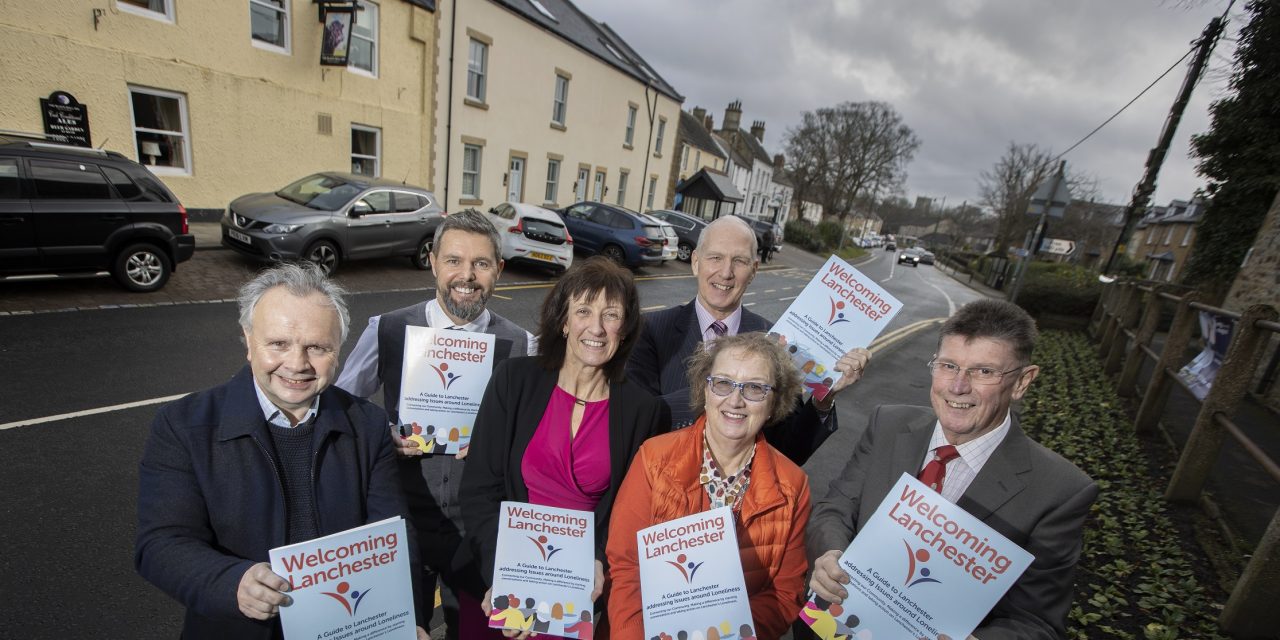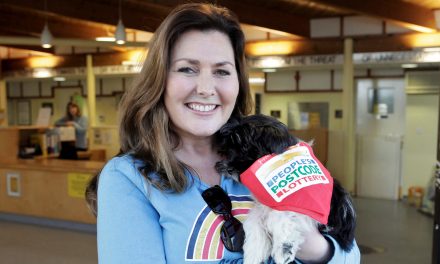Welcoming guide sparks vital conversations about loneliness
“Loneliness can affect us all, regardless of age or whether we live alone, and it’s vital we do as much as we can to ensure everyone feels a part of our community.”
This is the message at the heart of Welcoming Lanchester – a new guide that aims to combat loneliness among people of all ages.
The free publication is being distributed to every home in the parish and contains important information about local services, groups, clubs, organisations and amenities that can help people connect with one another and get the support they need.
It was created by a special working group comprising members of the Lanchester Medical Centre Patient Participation Group and the Lanchester Partnership, with support from Mid Durham Area Action Partnership (AAP) and Lanchester Parish Council.
Loneliness has been hitting the headlines in recent weeks, partly sparked by a high-profile Coronation Street storyline which saw the popular character Rita face spending Christmas alone. This was followed by a moving BBC Breakfast interview where a pensioner from Oldham, spoke about spending the last 20 Christmases by himself.
In Lanchester, residents have been researching loneliness and how to prevent it since 2016, inspired by the legacy of the late Jo Cox MP and the work of the Jo Cox Commission on Loneliness.
The group soon realised that loneliness can affect anyone and the often-held view that it is almost exclusive to older people is wrong. This is backed up by the BBC Loneliness Experiment Survey 2018, which found that young people are the group who say they feel the loneliest. Forty per cent of 16 to 24-year-old said they often or very often feel lonely, compared with 27 per cent of over 75s.
To reflect this, Welcoming Lanchester is divided into different sections, with chapters aimed at older and younger people, along with information for families, new people moving into the area and those living in more isolated rural locations. There is also a section about the benefits of volunteering and advice on where to find out about opportunities in the area.
The publication is the culmination of the working group’s research so far, but it is by no means the end of the story. On Thursday 16 January residents, local dignitaries, health professionals and representatives from Durham County Council, community groups and charities gathered to celebrate its official launch.
Working group member David Friesner said: “We started distributing Welcoming Lanchester before Christmas, but it was important for us to hold an official launch, as this is just the start. One of the key aims of the guide is to provide information about loneliness in a way that helps raise awareness, understanding and a sense of ownership among the community. It’s all about starting conversations and bringing people together to make a positive difference.”
Fellow member Marian Morrison said: “Although Lanchester is a bustling village with many clubs and community activities, loneliness still exists here. Loneliness can affect us all, regardless of age or whether we live alone, and it’s vital we do as much as we can to ensure everyone feels a part of our community.”
Cllr Lucy Hovvels MBE, Durham County Council’s Cabinet member for adults and health services, said: “Loneliness is a national issue and it is good to see its profile has been raised in recent years. However, to really make a difference, we must also tackle it at a local level and reach out to new members of our communities or those who may have become isolated. The Welcoming Lanchester publication is a fantastic example of what can be achieved and I hope it inspires similar projects across County Durham and beyond.”
As well as helping organise the launch and publicity for Welcoming Lanchester, Mid Durham AAP provided financial support, including grants of £4,800 from the Older People’s Social Isolation Fund and grants totalling £2,000 from Cllr Jude Considine and Cllr Ossie Johnson’s neighbourhood budgets.
Derek Snaith, Mid Durham AAP co-ordinator, said: “When the group approached us for support with this project, we were deeply impressed by their passion for the issue and determined to provide as much as help as possible. Loneliness is a terrible feeling to experience but this publication lets people know they are not alone. I’m sure the information within it will benefit residents of all ages for years to come.”











